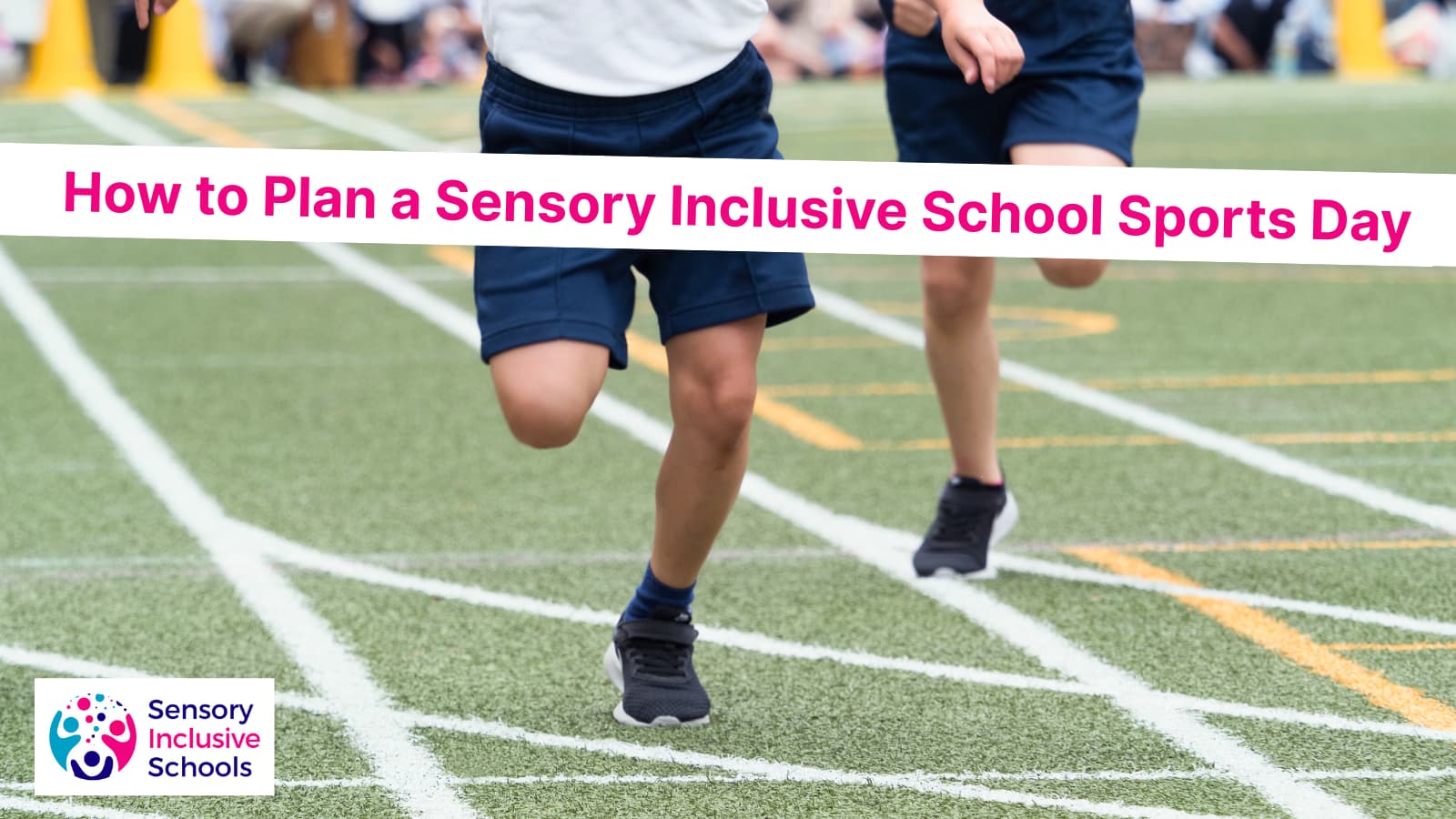
Practical tips for primary and secondary school staff
Sports day is an exciting part of the school calendar, but for some students it can be a difficult and overwhelming experience. Loud noises, bright sunlight, unfamiliar routines, physical challenges and large crowds can all create barriers to participation. This is especially true for learners with sensory processing differences or sensory-motor difficulties, who may find movement-based tasks or unpredictable situations particularly hard to manage.
The good news is that with thoughtful preparation and a few simple changes, you can make Sports Day more inclusive for all students. Here's how to plan a sensory-friendly event that supports every learner to take part and feel successful.
1. Prepare in advance, especially for learners who find movement challenging
For some learners, especially those with sensory-motor differences or coordination difficulties, planning and carrying out movements can be exhausting. Skills like obstacle racing, throwing, catching, or jumping may require extra practice and support to develop confidence.
- Offer one-to-one or small group sessions ahead of time to break activities down into steps.
- Repeat key movements slowly and clearly, and provide plenty of time to build confidence.
- Practice in the same setting where Sports Day will take place, if possible.
- Use visuals, video modelling, or mirror exercises to support motor planning.
2. Share a clear, predictable schedule
Help students feel more confident by giving them a simple, easy-to-understand timetable ahead of the event. Use visual formats or simplified text for younger children or learners with additional needs.
Include details such as when events will take place, what they need to wear or bring, and what they will be expected to do. Offer individual schedules for learners who benefit from structure and clear expectations.
3. Adapt the environment to reduce sensory overload
Make small adjustments to reduce the impact of sensory triggers on the day:
Sound:
-
Keep announcements short and at a moderate volume.
-
Avoid using whistles or airhorns if possible. Use visual signals instead.
Light:
-
Provide shaded areas using gazebos or shelters.
-
Allow hats or sunglasses for learners sensitive to bright sunlight.
Touch:
-
Be flexible with PE kit if the fabric or fit causes discomfort.
-
Encourage the use of sensory supports like ear defenders or chewies if helpful.
4. Create calm spaces for learners who need a break
Have a quiet area available for any learner who feels overwhelmed, dysregulated or anxious. This could be a tent, gazebo or nearby classroom with soft seating, water, and calming resources such as fidget toys or visuals. Make sure staff and learners know this space is there and that it can be accessed without penalty or fuss.
5. Plan for transitions and waiting times
Moving between events or waiting for turns can be especially difficult for some students. To help:
-
Use clear signage or familiar adults to support transitions
-
Offer visual countdowns or timers
-
Provide simple activities or rest options for learners while waiting
If you have staff available, assign a trusted adult to support specific learners through transitions.
6. Make adaptations within compulsory participation
In UK schools, participation in Sports Day is usually expected for all pupils. But that doesn’t mean everyone has to do the same thing in the same way.
Adapt activities to suit a wider range of abilities. For example, allow walking rather than running, underarm throws instead of overarm, or guided movement rather than independent tasks. Use teamwork to allow every learner to play a role. Focus on personal bests, effort and enjoyment rather than just winning.
7. Brief all staff and volunteers
All adults involved in the day should understand how to support learners with sensory and motor differences. This includes knowing how to:
-
Recognise signs of sensory overload
-
Provide quiet encouragement without drawing attention
-
Reinforce effort and participation
-
Respect agreed adaptations or support plans
A short staff briefing before the event can help create a consistent, supportive environment for everyone.
8. Recognise and celebrate a wide range of achievements
Not every success is about speed or scoring points. For many learners, managing to take part at all is a major achievement.
Celebrate effort, perseverance, team spirit and progress. Use certificates, shout-outs, or classroom discussions to highlight and reward inclusive values. These messages matter, especially for learners who may find Sports Day more challenging.
9. Reflect and improve for next time
After the event, take time to gather feedback from learners, staff and families. Ask what worked well and what could be improved. Involve neurodivergent learners in these conversations where possible. Even small changes can make a big difference next year.
Supporting Your Whole School Approach to Inclusion
Our Sensory Inclusive Schools programmes train and support school staff to spot unmet sensory needs and adapt environments and tasks so that every learner is included.
Find out more here.

